JL Audio 5 Channel Class D System Amplifier With Integrated DSP - VX700/5i

JL Audio 5 Channel Class D System Amplifier With Integrated DSP - VX700/5i
VX700/5i
5-Channel Class D System Amplifier with Integrated DSP, 75 W x 4 @ 4 Ω + 300 W x 1 @ 2 Ω - 14.4V
Designed to simplify great audio, every VXi amplifier combines our advanced NexD2™ switching amplifier technology with an integrated, full-featured digital signal processor.
Employing our second generation NexD2™ amplifier technology, the VX700/5i efficiently powers a complete audio system. It can drive four main speakers with 75 W x 4 @ 4 ohms while also powering a subwoofer with up to 300W @ 2 ohms. Bridging the main channels converts it into a very powerful, 3-channel system amplifier with up to 200W x 2 @ 4 ohms on the main channels and 300W @ 2 ohms on the subwoofer channel.
The NexD2™ full-range technology in the main channels of this amplifier is DSP-controlled and features a reduced loop area design utilizing DirectFET™ outputs for outstanding fidelity, very low noise and exceptional efficiency. The subwoofer channel features an optimized low-frequency variant of the NexD2™ technology. The amplifier chassis is ultra-compact, with all connections on one side, to greatly simplify installation into tight spaces.
Instead of traditional control knobs and switches, all amplifier adjustments and DSP functionality are configured via a compatible external device (PC, Tablet or Smartphone), with the appropriate JL Audio TüN™ Software application installed.
Amplifier includes: Power Connector (for 4 AWG wire), Analog Input/Pre-Out Harness, Speaker Output Harness, Subwoofer Output Harness, 6 ft A/B USB Cable
| Main Channels @ 4 Ω | 75 W RMS x 4 |
| Main Channels @ 2 Ω | 100 W RMS x 4 |
| Main Channels - Bridged @ 4 Ω | 200 W RMS x 2 |
| Subwoofer Channel @ 4 Ω | 180 W RMS x 1 |
| Subwoofer Channel @ 3 Ω | 240 W RMS x 1 |
| Subwoofer Channel @ 2 Ω | 300 W RMS x 1 |
| Subwoofer Channel @ 1.5 Ω | N/A |
Rated Continuous (RMS) Power @ 12.5 V
| Main Channels @ 4 Ω | 60 W RMS x 4 |
| Main Channels @ 2 Ω | 90 W RMS x 4 |
| Main Channels - Bridged @ 4 Ω | 180 W RMS x 2 |
| Subwoofer Channel @ 4 Ω | 180 W RMS x 1 |
| Subwoofer Channel @ 3 Ω | 240 W RMS x 1 |
| Subwoofer Channel @ 2 Ω | 300 W RMS x 1 |
| Subwoofer Channel @ 1.5 Ω | N/A |
General Specifications
| Frequency Response (Main Channels) | 12 Hz - 21 kHz (+0, -1dB) |
| Frequency Response (Subwoofer Channel) | 12 Hz - 1 kHz (+0, -1dB) |
| S/N Ratio, referred to highest rated power (Analog Inputs - Main Channels) | 99 dB (A-weighted, 20 Hz - 20 kHz noise bandwidth) |
| S/N Ratio, referred to highest rated power (Analog Inputs - Subwoofer Channel) | 99 dB (A-weighted, 20 Hz - 20 kHz noise bandwidth) |
| S/N Ratio, referred to 1 W (Analog Inputs - Main Channels) | 80 dB (A-weighted, 20 Hz - 20 kHz noise bandwidth) |
| S/N Ratio, referred to 1 W (Analog Inputs - Subwoofer Channel) | 72 dB (A-weighted, 20 Hz - 20 kHz noise bandwidth) |
| S/N Ratio, referred to highest rated power (Digital Inputs - Main Channels) | 101 dB (A-weighted, 20 Hz - 20 kHz noise bandwidth) |
| S/N Ratio, referred to highest rated power (Digital Inputs - Subwoofer Channel) | 102 dB (A-weighted, 20 Hz - 20 kHz noise bandwidth) |
| S/N Ratio, referred to 1 W (Digital Inputs - Main Channels) | 82 dB (A-weighted, 20 Hz - 20 kHz noise bandwidth) |
| S/N Ratio, referred to 1 W (Digital Inputs - Subwoofer Channel) | 80 dB (A-weighted, 20 Hz - 20 kHz noise bandwidth) |
| Damping Factor @ 4 Ω | >150 / 50 Hz |
| Damping Factor @ 2 Ω | >50 / 50 Hz |
| THD+N @ Rated Power (Main Channels) | <1% @ 2 Ω per Ch. |
| THD+N @ Rated Power (Subwoofer Channels) | <1% @ 2 Ω per Ch. |
| Input Voltage Range @ RCA Inputs | 200 mV - 16 V RMS |
| Min.Copper Power / Ground Wire Gauge | 4 AWG wire |
| Fuse Rating | 60 A (AFS, AGU or MaxiFuse™) |
Physical Specifications
| Height (H) | 2.12 in / 54 mm |
| Width (W) | 9.81 in / 250 mm |
| Depth (D) | 6.62 in / 168 mm |
| Net Weight | 5.6 lb / 2.54 kg |
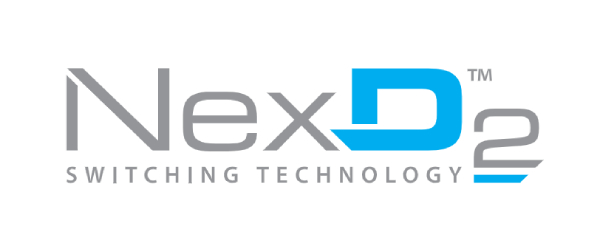
TECHNOLOGY
NexD2™ Switching Technology
Summary:
JL Audio's NexD2™ amplifier technologies are a next-level approach to improving what is already an outstanding Class D design platform. Employing new components and more advanced circuit layouts, fidelity and efficiency have been significantly enhanced.
Detailed Information:
NexD2™ switching technologies are an evolution of our renowned NexD™ Class D technology, with significant improvements in fidelity, efficiency and radiated noise performance.
NexD2™ employs a new generation of power supply and output devices, which are incredibly compact and surface-mountable. These Infineon® DirectFETTM devices feature the latest MOSFET silicon technology, the smaller package reduces parasitic capacitance and inductance thus improving current carrying capability and efficiency, encased in a metal enclosure to optimize heat dissipation. They also minimize radiated noise.
In addition to the new silicon, NexD2™ benefits from advancements in the area of circuit layout. Our "minimum loop area" design approach places capacitors closely coupled to each output section, and the amplifier circuits have been engineered to minimize the length of ground return paths. This approach reduces interaction between the audio channels, to improve separation and reduce distortion and radiated noise.
In the multi-channel VXi amplifiers, we have also leveraged the power of the on-board DSP to synchronize all channels via the DSP's master clock. This eliminates undesirable interactions between channels that are caused by variations in switching frequency.
The resulting NexD2™ amplifiers are incredibly compact and efficient, while delivering a level of fidelity that will satisfy the most demanding listener.

Advanced Rollback Protection
Summary:
JL Audio's exclusive Advanced Rollback Protection circuit monitors the amplifier's thermal condition and adjusts amplifier operation to eliminate annoying amplifier shut-down events.
Detailed Information:
Should a JL Audio amplifier equipped with Advanced Rollback Protection reach an unsafe operating temperature, a special circuit rolls back peak power output, without changing gain, until the amplifier cools down to a safe operating temperature. The condition is generally indicated by a red “Thermal” or “Status” LED state. On VXI amplifiers, the LED ring will flash red. Once the amplifier cools down, the circuit restores full peak power output and the indicator reverts to its normal state. The operation of Advanced Rollback Protection is inaudible in most cases, but it ensures that your music keeps on playing, even under the most demanding conditions.

Differential-Balanced Inputs
Summary:
JL Audio’s Differential-Balanced Inputs are engineered to combat induced cable noise, which is a common problem in car and marine audio installations. This technology allows for the use of conventional RCA cables, while delivering many of the benefits of a true balanced connection and accepting a wide range of input signal levels.
Detailed Information:
Today’s vehicles are equipped with sophisticated electronics capable of generating noise and interference that can intrude into the audio path, ruining the listening experience.
Most audio equipment uses single-ended, ground-referenced RCA jacks to receive audio signals. This means that the RCA shield is connected directly to signal ground. This is a simple, cost effective input design that works well for short runs in noise free environments. In noisier environments, this method cannot reject the common mode noise that could be on both RCA conductors (shield and center conductor).
By having more than one chassis-grounded RCA shield on a device, single-ended input designs are also more susceptible to ground loops. If noise is present on both conductors while the shield is connected to ground, the input amplifier will amplify the noise relative to the grounded RCA shield. When there are multiple RCA connections or any other conductors subjected to a magnetic field, this will cause a difference in potential across the RCA loop to be amplified at the grounded RCA as noise (a classic ground loop).
JL Audio’s Differential-Balanced Input circuits measure the center pin of the RCA connection relative to the RCA shield, even when the shield is not connected to ground, and even when the voltages at both conductors are moving relative to ground. Because both the center conductor and the shield see high impedance to ground at the input, a ground loop cannot be formed, as there is no current flow to induce a voltage as noise. This works equally well with differential-balanced, or unbalanced signal sources, making this input architecture compatible with all standard car and marine audio equipment, using standard, unshielded, twisted-pair RCA cables. No special cables are required, unlike the fully balanced connections used in professional audio.
Another benefit of the Differential-Balanced Input design is that it easily accepts low-level and high-level signals from a variety of factory head unit outputs and amplifiers, including single ended “ground referenced” sources, as well as Balanced or Unbalanced “Bridged or BTL” sources. This eliminates the need for Line Output Converters (LOCs) in most installation scenarios.
The obvious question is: “Why don’t all car audio amplifiers use Differential-Balanced Inputs?” The answer is simple: it costs more. Executing a proper differential-balanced input section requires more components and better quality components than a basic single-ended design, so you generally won’t find them on less expensive amplifiers.

JLid™
Summary:
JLid™ is JL Audio's protocol for digital controllers and for communication of settings between devices (not for audio signals).
Detailed Information:
JLid™ offers two-way communication for a range of accessories, including the following:
- Wired System Controllers: DRC-100, DRC-200, DRC-205
- Bluetooth® Communicator: VXi-BTC
- Networking Accessory: VXi-HUB
JL Audio FiX™ and TwK™ processors each feature one “JLid™ Port”, designed for connection of a wired controller.
JLid™ connections are made via standard CAT-5e cables.
Write a review



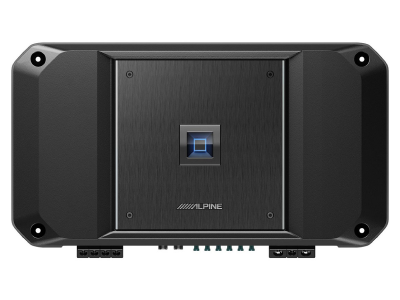
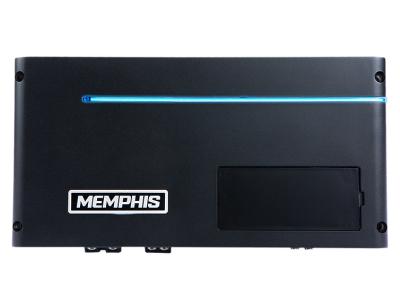
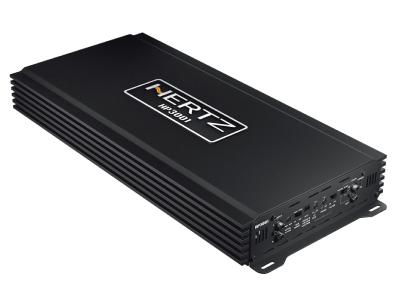
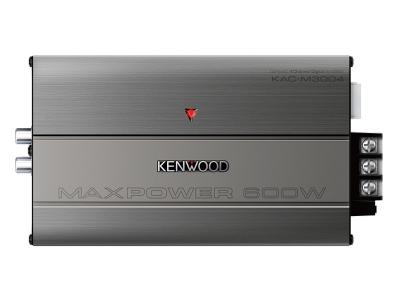
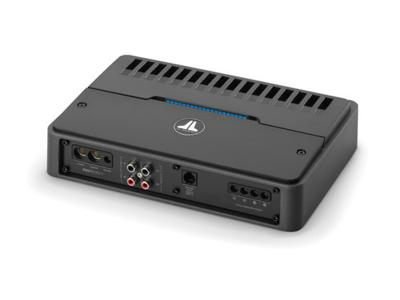
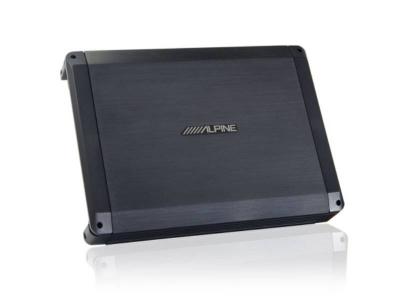
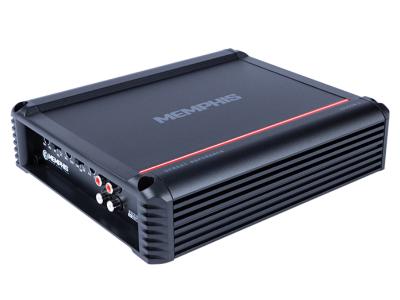
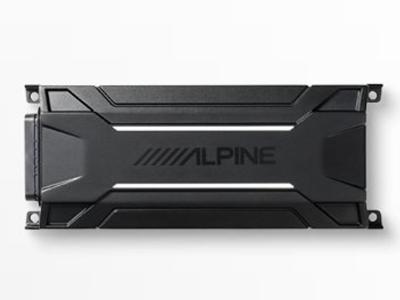
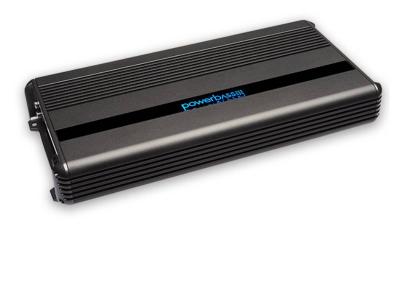
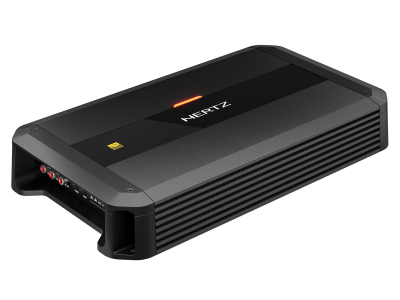
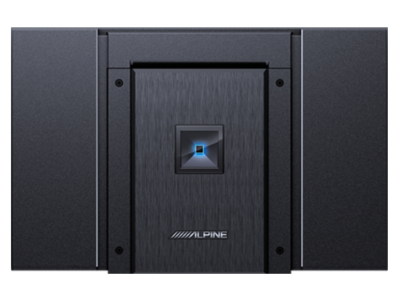
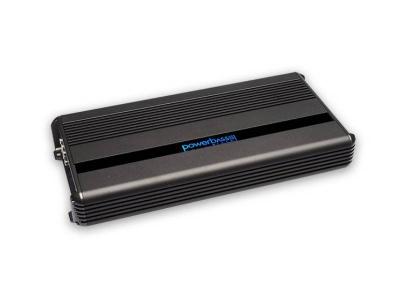
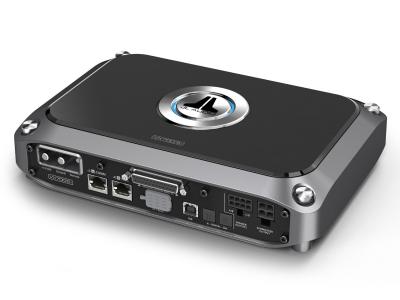


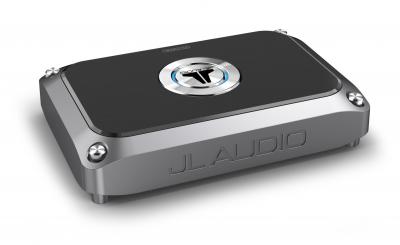







 Or as low as $179.16/month over 12 months.
Or as low as $179.16/month over 12 months.